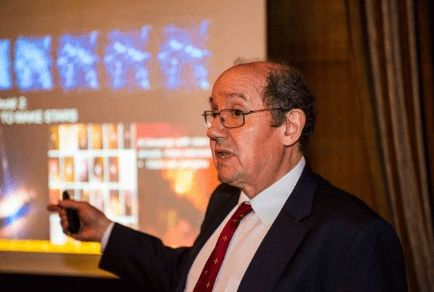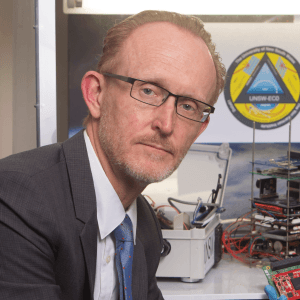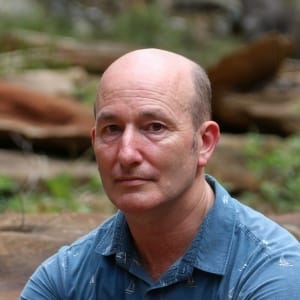
“Big history”
 Professor David Christian
Professor David Christian
Director, The Big History Institute
Macquarie University
Wednesday 4 November 2015
Union, University and Schools Club, 25 Bent Street, Sydney
Since the beginnings of human history, taking stories from the past and synthesising them has delivered far more than the sum of the parts – it is an enormously powerful way that humans use to place themselves in context. All human societies use this approach to create origin-stories that define their place in the world. Astronomy, geology, biology, human history, anthropology, taken within the context of prehistory, ancient history and modern history can create an enormously rich origin-story for modern civilisation. Indeed, when modern science is brought to bear, this becomes even more powerful.
Modern astronomy and theoretical physics suggest that our universe is about 13.8 billion years old. We have been able to observe and to delve into this history, at least in part, to a few hundred thousand years after the Big Bang. It is thought that within seconds of the Big Bang an almost-instantaneous inflation took place, causing the universe to expand, a phenomenon that continues and, indeed accelerates, even today. A consequence of this (as described in what is known as the “second law of thermodynamics”) is that complexity continues to increase. Stars formed, some exploded causing formation of the elements, these gradually came together to form new stars and planets and, at least on one planet in the universe, life evolved. To put this in context, the Earth is about 4.5 billion years old, life began about 1 billion years later, with more sophisticated lifeforms not appearing until about 500 million years ago. It is hard to think in billions of years so to give some sense of scale, if rather than 13.8 billion years, the age of the universe was 13.4 years, the Earth formed about five years ago, the more sophisticated forms of life such as insects, plants and other animals started to form 3–5 months ago, the asteroid that wiped out the dinosaurs hit 2½ weeks ago and humans have only been around a day or two.
Professor Christian describes human history as a sequence of “thresholds” – the big bang, the influence of gravity, the formation of chemicals and so on. The fifth of these thresholds was the formation of life. Lifeforms that we know a distinctive because they are complex adaptive systems – they behave in unpredictable ways. The only way in which life can be successful is if it develops the capacity to store and manage information so that it can respond to unpredictable changes in its environment. The second law of thermodynamics says that energy is required to overcome the natural tendency to disorder so all life on earth is reliant on energy to overcome complexity and on DNA to store and pass information to subsequent generations. Hence, at the heart of life is energy and information.
In the case of humans, we have developed a very sophisticated way (called language) to communicate that allows us to pass information to one another. Virtually all the energy available on Earth originates from the Sun. Human evolution progressed quite quickly when farming and fire allow greater utilisation of energy, so the capacity to control information became substantially greater. This took off exponentially when humans develop ways to utilise fossil fuels, and, later, nuclear power thereby gaining access enormous amounts of energy beyond that which is immediately available from sunlight.
We now have so much energy and so much information that it is potentially enough to destroy the biosphere. The question is do we have the capacity and the wisdom now to control this? That remains to be seen.








